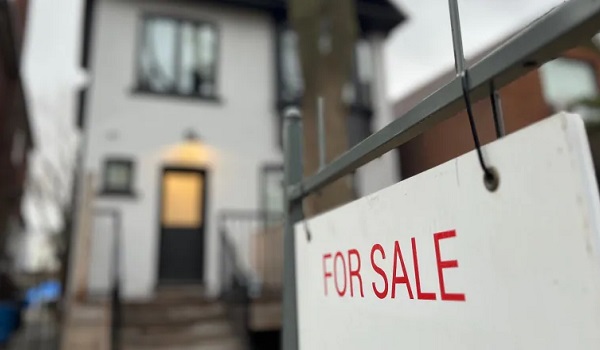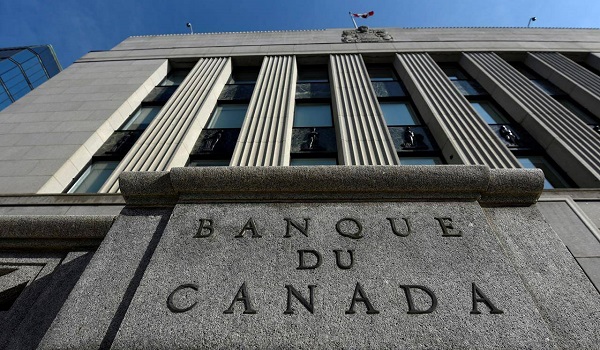In the event of a recession, Toronto’s real estate market will still remain unaffordable: Report
A recession could bring a significant price correction to Toronto’s real estate market, and some prospective home buyers are eyeing an opening if prices plunge. But even in the direst of economic scenarios, Desjardins economists don’t see affordability returning to Canada’s largest city.
In the worst-case scenario, a 1990s-style recession in Ontario would lower average home values by $185,000, or 16 per cent below current levels, by the end of 2024, according to Desjardin’s Tuesday report. The average home price in Toronto was $1.1 million in July.
By the fourth quarter of 2025, Toronto prices would drop by $340,000, or 30 per cent. That would result in the average home price sitting at around $770,000. Even so, affordability would return to 2015 levels, the report says, when affordability was “stretched.” Affordable housing means no more than 30 per cent if a person’s income goes toward shelter.
But such a significant price decline would come at a “massive economic and social cost” the report says, which would see tens of thousands of Canadians without jobs, unable to jump into the housing market.
“We wanted to explore with more precision what would happen to Toronto home prices and affordability with different economic scenarios,” said Marc Desormeaux, principal economist at Desjardins and report co-author. “With weaker than expected GDP numbers that we saw last week, we wanted to look at an environment with significant price decline and what that would mean for the rest of the economy.”
In the worst-case scenario, half a million jobs would be lost and income would be slashed, he said, indicating that for Toronto to become more affordable, it comes at a high cost.
“Improving affordability is a long run process,” he said. “The construction process takes time and it takes years before those new units come to the market. We need to remain relentlessly focused on these supply targets.”
Conversely, a more bullish house price trajectory is also possible due to strong population growth and limited supply of new listings coming to the market, the report said. Prices could in fact lift prices above the February 2022 peak — when the average Toronto home price was $1.33 million — by early 2025.
Since 2005, Canada has seen a steady increase in home prices, rising drastically in the last decade to surpass the U.S., the U.K., Australia, France, and Germany with Toronto sitting on a ballooning housing bubble.
“We assume house prices will quickly rebound over the next two years — supported by interest rate cuts in 2024 to 2025, strong demographic growth, and tightly balanced supply and demand,” the report said.
Demographic trends indicate an increase in housing demand now than 30 years ago, the report says, as the population is expected to grow sharply and an increasing number of millennials are entering prime home-buying years.
This comes at a time when Toronto housing inventory is hovering near record lows in contrast to the 1990s, meaning Ontario will need to ramp up new home construction more than any other province to restore affordability.
To build more housing, Ontario must scrap exclusionary zoning by building more diverse unit types in neighbourhoods dominated by single family homes, Desormeaux said. Also, forgoing GST/HST on purpose-built rentals will incentivize more construction of that much-needed housing, and using skilled workers entering Canada to help with the labour shortage issues in the construction industry, he added.
“Toronto remains a vibrant cosmopolitan city and competes for talents with jurisdictions from around the world,” he said. “But within Canada, particularly in the pandemic, we saw that housing affordability plays more of a role in terms of where people settle in Canada. And we’ve seen people leave Ontario for more affordable places.”
This article was reported by The Star
















